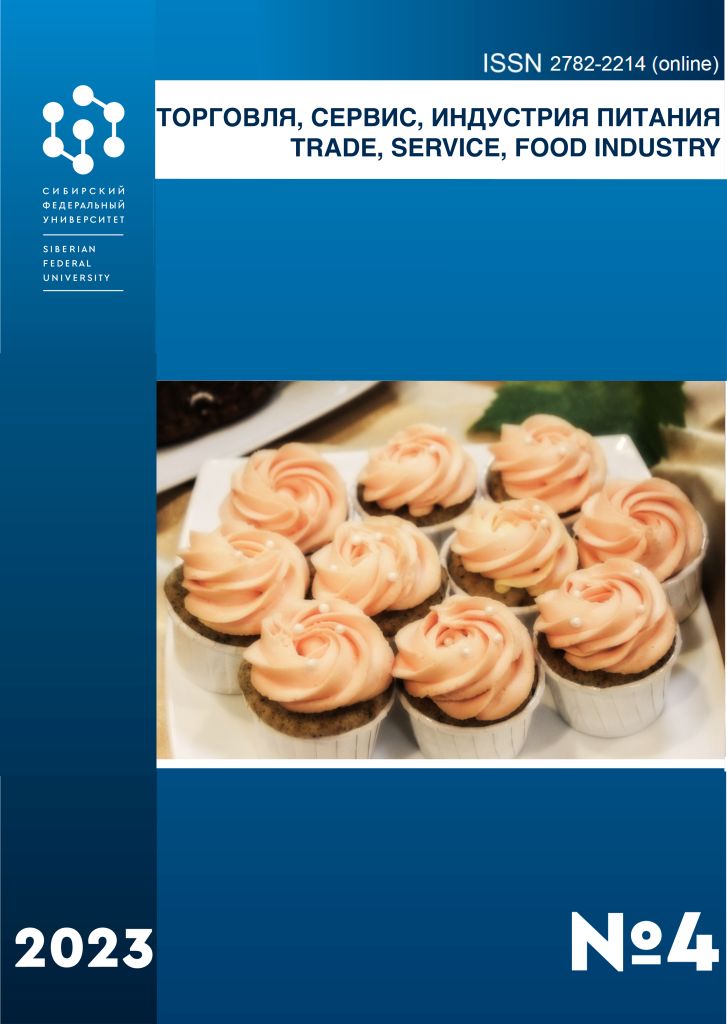Krasnoyarsk, Russian Federation
Zheleznogorsk, Russian Federation
UDC 332.1
The article examines the impact of digitalization on the industry markets structure, which is revealed based on the “structure-actions-result” paradigm. The authors drew attention to such issues as: the main vectors of influence of the digital technologies development on the basic conditions for the formation of industry markets; the transformation of the markets structural parameters as a result of changes in the forms and models of business agents’ interactions; the formation of new tools for the behavior of business entities, as well as the regulatory role of the state to achieve the efficiency of industry markets.
digitalization, “structure-behavior-result” paradigm, basic conditions for the development of industry markets, behavior of market subjects, government regulation
1. Tirol, J. (1996). Markets and market power: the theory of industrial organization. Saint-Petersburg : Economic school, 745.
2. Scherer, F. (1997). Structure of industry markets. Moscow: INFRA-M, 698.
3. Gradov, A. P. National economy. Lecture course. Saint-Petersburg : Special literature, 1997, 315.
4. Duncan, J. W. (1996). Fundamental ideas in management. Lessons from the founders of management and management practice. Moscow : Delo, 272.
5. Fatkhutdinov, R. A. (2000). Strategic Marketing. Moscow : Business School Intek-Sintez, 640.
6. Avdasheva, S. B. (1998). Analysis of commodity market structures: economic theory and practice in Russia. Moscow : TEIS, 154.
7. Nureyev, R. (2000). Theory of development: Keynesian models of a market economy formation of // Questions of Economics, 4, 137-156.
8. Porter, M. E. (2000). Competition. Moscow : Williams, 495.
9. Weil, P., Warner, S. (2019). Digital transformation of business: Changing the business model for a new generation organization. Moscow : Alpina Publisher, 257.
10. Schwab, K. (2016). The Fourth Industrial Revolution. Moscow : Eksmo Publishing House, 134.
11. Yoo, I., Yi, C. G. (2022). Economic Innovation Caused by Digital Transformation and Impact on Social Systems. Sustainability, 14, 2600. [Electronic source] URL: https://doi.org/10.3390/su14052600.
12. Kuimov, V. V., Shcherbenko, E. V., Yushkova, L. V. (2023). The transition to ecosystem platform interactions of businesses in the region - the basis of innovative development in the new technological structure. Journal of the Siberian Federal University. Series: Humanities, Vol. 16, No. 10, 1820-1827. EDN LCUWES.
13. Kolesnik, V., Shcherbenko. E. V., Valeeva, Yu. (2023). Bioresources in the Formation of New-Generation Products. Sustainability, Vol. 15, No. 21, 13830. EDN HJIPTR.
14. Kuimov, V. V., Simonov, K. V., Shcherbenko, E. V. [et al.] (2021). Study of the concept of a strategic scenario for the integrated development of business ecosystems in the region based on digital models. Informatization and Communication, 2, 30-45. DOIhttps://doi.org/10.34219/2078-8320-2021-12-2-30-45. EDN SRDVOD.
15. Ananyev, M. A., Konkova, R. R. (2012). Methodical approaches of application of parameters of stability of system of food supply in management. System management, 4(17), 2.
16. Romanyuk, M.A., Lichko, K.P. (2012). About concept of sustainable development in agriculture. Proceedings of the Timiryazev Agricultural Academy, S, 11-15.
17. Charyeva, M.O. (2016). To the question of competition in the public catering industry. Economic and Legal Issues, 93, 70-74.








